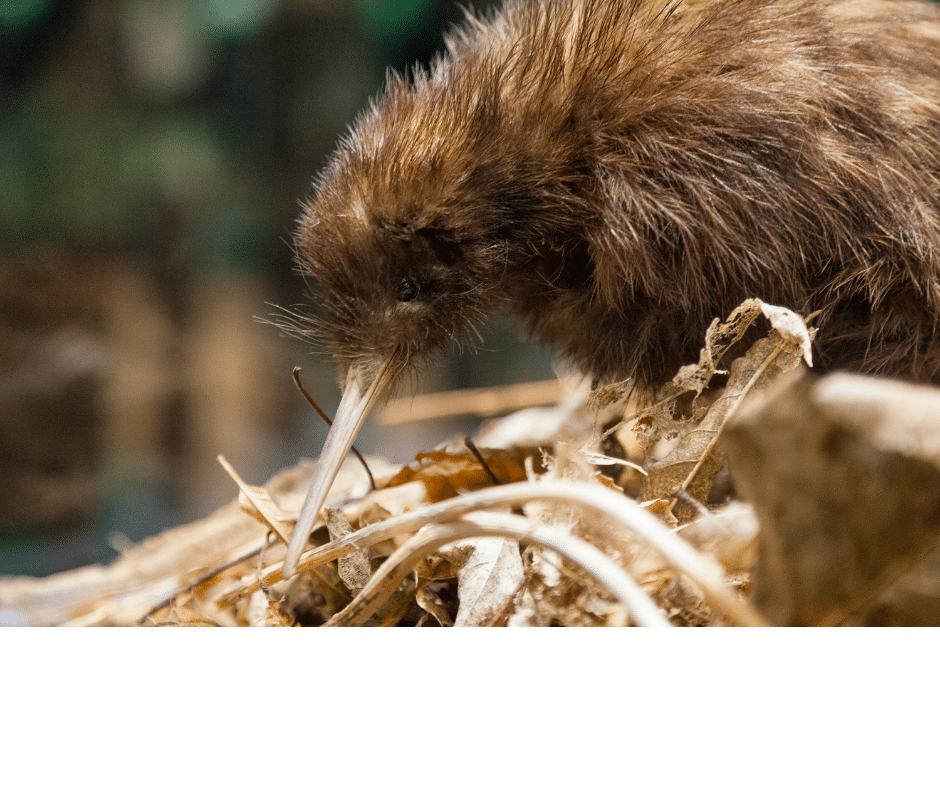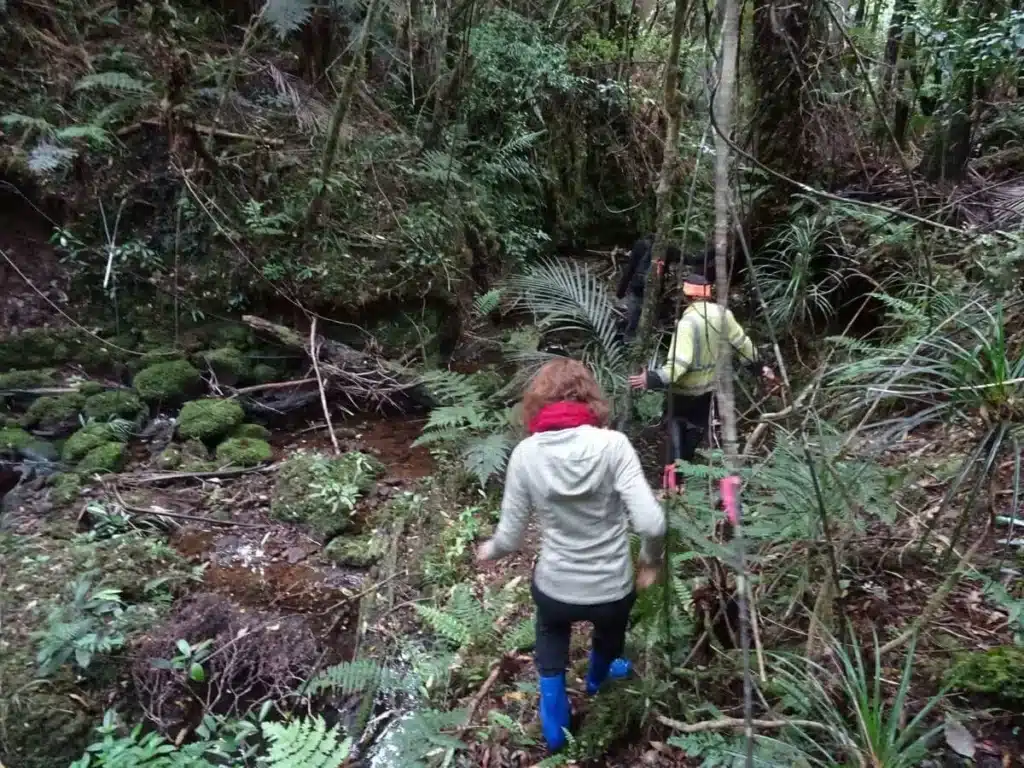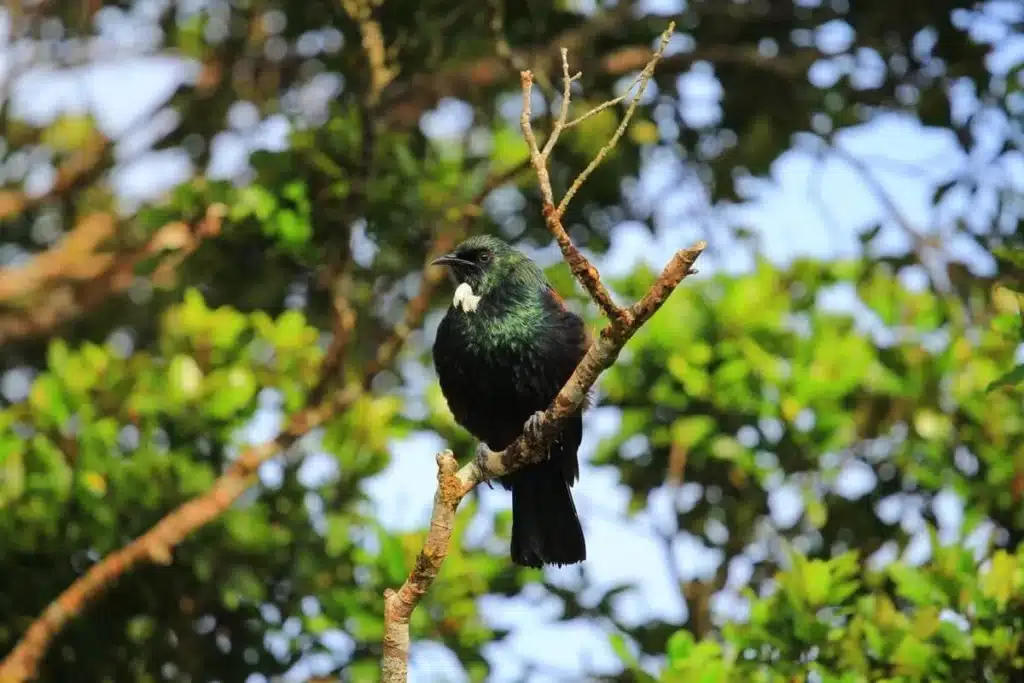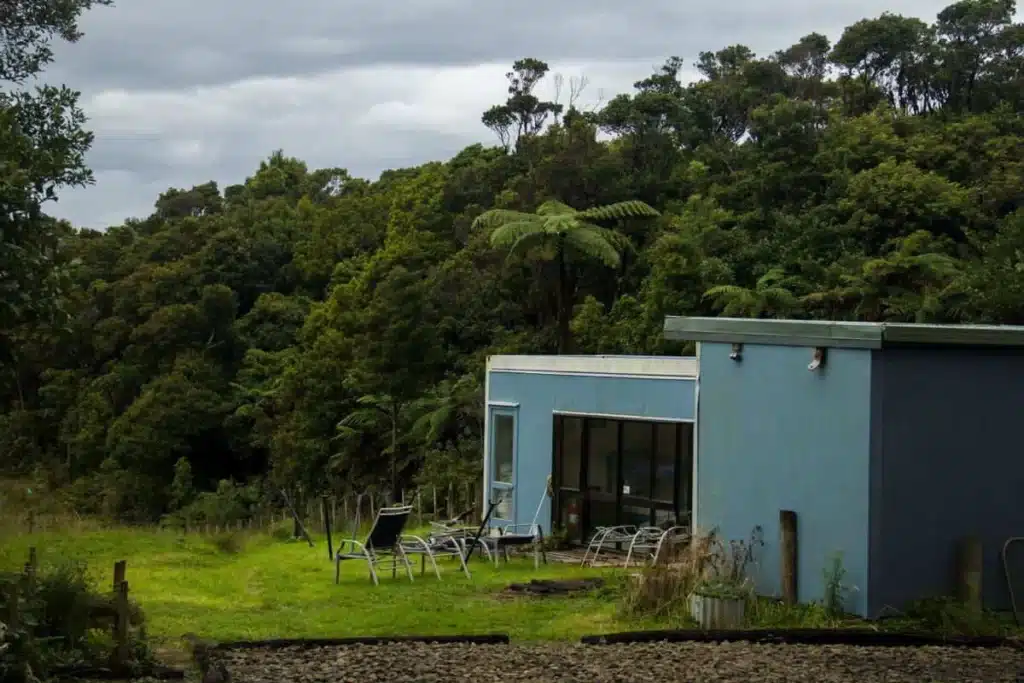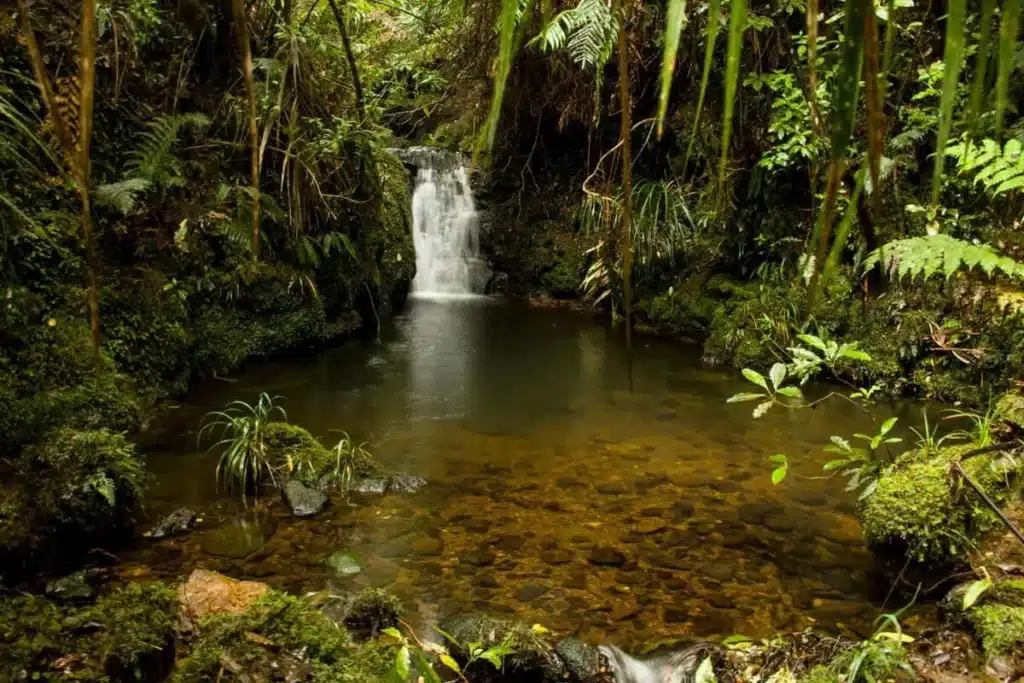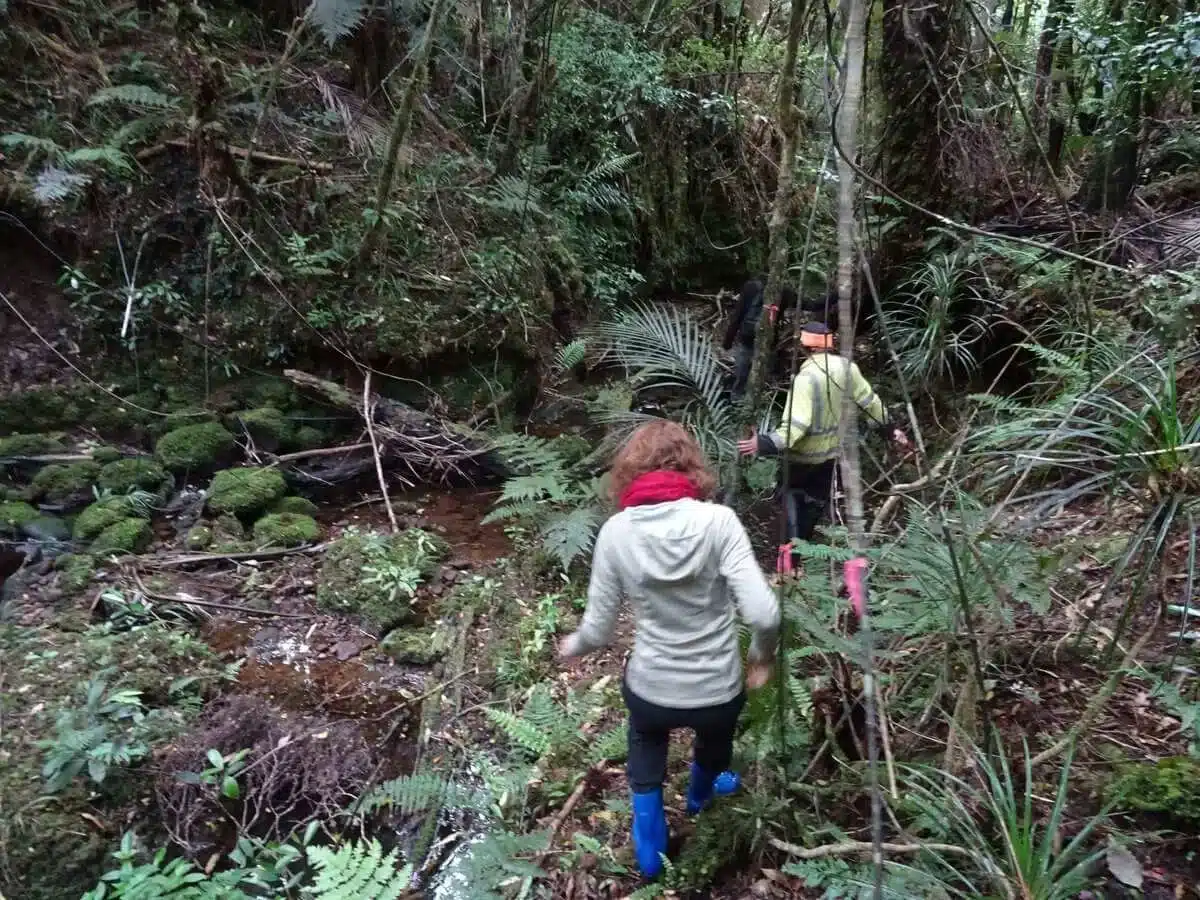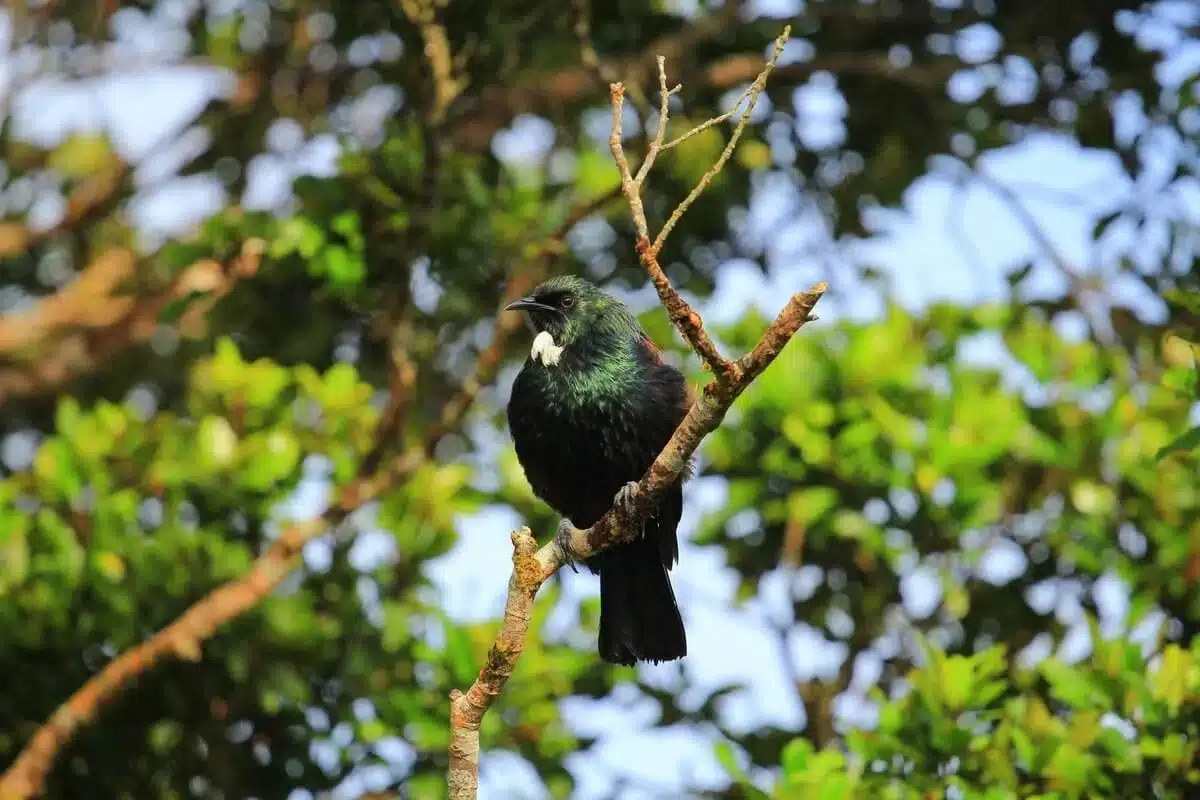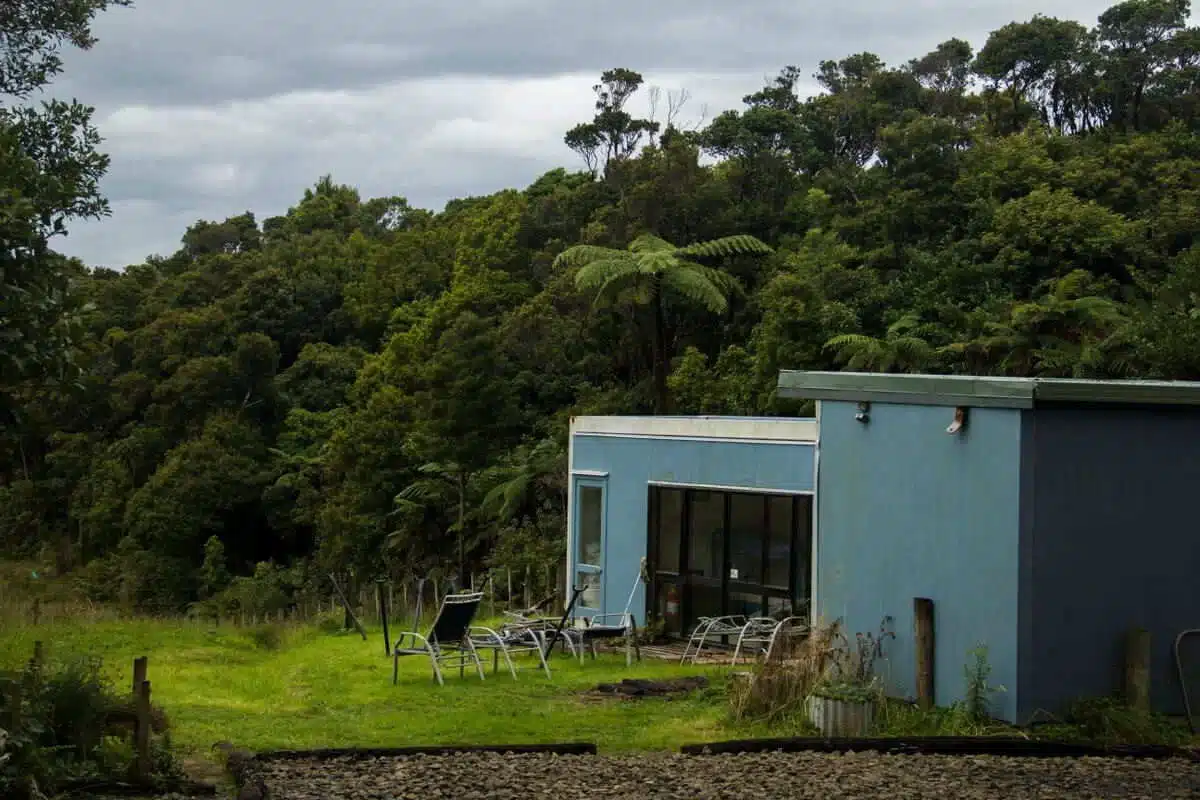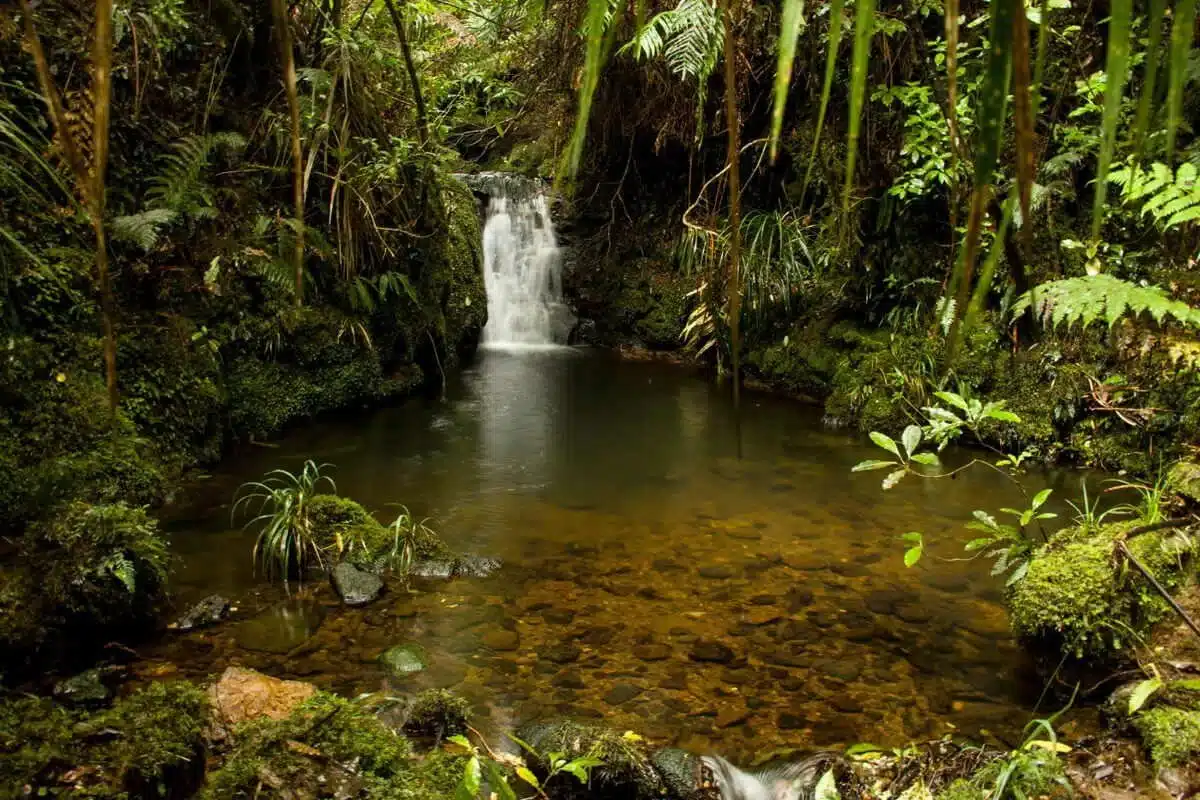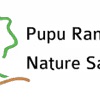Engagez-vous pour la protection des fabuleuse forêts de Nouvelles-Zélande ! Vivez une aventure formidable en vous reconnectant à la nature, loin de la ville. Toutes les missions en Océanie ici
Des espèces endémiques et des arbres millénaires
La Nouvelle Zélande est l’un des territoires les plus isolés de la planète, connu pour abriter des forêts luxuriantes peuplées d’espèces endémiques. Si sa biodiversité ne fait pas l’objet d’une attention constante, les plantes invasives et l’urbanisation pourraient faire disparaître à jamais ce trésor.
Lors de cette mission d’écovolontariat, Vous serez engagé dans une réserve naturelle qui se trouve au nord de la Nouvelle-Zélande. Cette réserve surplombe l’océan et est constituée essentiellement d’un environnement forestier. Il s’agit d’un endroit unique, loin de toute grande ville est dont les premières habitations se trouvent à 2 kilomètres.
150 hectares de forêt en régénération
La réserve naturelle se compose 150 hectares de forêt tropicale en régénération. Une forêt indigène classée, où aucune exploitation forestière n’est autorisée. Les nombreuses espèces endémiques qui y vivent, dont le fameux kiwi, nécessitent une protection active contre les parasites introduits. En effet, les vaches, les opossums, les lapins et les chèvres sauvages broutent sans discernement les jeunes plantes, empêchant ainsi le renouvellement de la forêt. Les opossums, les rats, les furets et les chats sauvages mangent les œufs et les poussins d’oiseaux.
Protéger les espèces indigènes
L’objectif du programme est de réduire le nombre de nuisibles afin de donner aux jeunes plants et aux oiseaux indigènes une chance d’arriver à maturité. La direction de la réserve travaille avec ministère de l’environnement et les volontaires travaillent main dans la main avec des gardes-forestiers et apprennent les dernières techniques de protection de la nature.
Le rôle de l’écovolontaire dans la réserve naturelle de Nouvelle-Zélande
En tant que volontaire, vous découvrirez l’écosystème de la forêt tropicale néo-zélandaise et les animaux qui y vivent. Vous comprendrez les défis auxquels les autorités locales sont confrontées en matière de conservation, grâce à la formation qui vous sera prodiguée. Vous contribuerez à la protection de la biodiversité de quatre forêts différentes dont une forêt millénaire.
Vous recevrez une formation approfondie pour atteindre un haut niveau en matière de conservation.
L’action des écovolontaires se décline en différentes tâches :
- Activités de conservation telles que la lutte contre les parasites et la surveillance des espèces indigènes. Les activités comprennent : la coupe des pistes, le piégeage, la surveillance des kiwis et des escargots, l’installation de caméras de surveillance et l’analyse des données.
- Entretien du terrain et participation à divers travaux de maintenance
Vous apprendrez
- À vous orienter dans une forêt luxuriante en utilisant un carte, une boussole et des repères.
- À utiliser une radio pour communiquer ou en cas d’urgence.
- À planifier, préparer et exécuter un certain nombre d’activités de conservation.
- À identifier et à cartographier les sentiers forestiers.
- À Identifier les plantes et les arbres de la Nouvelle-Zélande.
- À faire face aux défis environnementaux.
- Les techniques de protection des Kiwis en Nouvelle-Zélande.
Départ le premier et le troisième lundi du mois entre novembre et mars
| Durée | Tarif | |
|---|---|---|
| 1 semaine | 440 € | |
| 2 semaines | 825 € | |
| 3 semaines | 1155 € | |
| 4 semaines | 1452 € | |
| 5 semaines | 1815 € | |
| 6 semaines | 2178 € | |
| 7 semaines | 2541 € | |
| 8 semaines | 2905 € | |
| 10 semaines | 3630 € | |
| 12 semaines | 4356 € |
Inclu dans le tarif
Transport entre Dargaville et le sanctuaire
Encadrement et orientation
Repas
Logement
Excursion touristique hebdomadaire dans la région
Donation pour la réserve
Non inclu dans le tarif
Billets d’avion
Visa
Assurances voyage et rapatriement
Transport vers et depuis Dargaville
- 18 ans pour les filles et minimum 20 ans pour les garçons
- Niveau d’anglais intermédiaire
- Vous passerez un entretien si vous souhaitez rester plus de trois semaines.
- Assurance voyage tous risques.
- Être non fumeur et non vegan.
Le logement et les repas
Les logements sont spartiates mais fonctionnels. Vous dormirez dans des dortoirs et aurez accès à des douches chaudes.
Tout le monde est invité à la préparation des repas.
Comment se rendre au projet ?
Depuis Auckland vous devrez prendre deux bus pour vous rendre à Dargaville (le premier bus va d’Auckland à Whangarei, le second de Whangarei à Dargaville). Quelqu’un vous attendra à Dargaville avant 17h30 afin de vous emmener au projet. Les participants qui ont leur propre véhicule doivent se rendre au Hub de Whangarei à la même heure et suivre le groupe jusqu’au sanctuaire.
Pour le retour, on vous déposera à Dargaville le lundi à 7h30 (pour le bus à destination de Whangarei).
En raison de l’isolement du sanctuaire, il est préférable d’emporter tout ce dont vous avez besoin et de faire vos derniers achats avant de quitter Whangarei.
Vous séjournerez dans un sanctuaire situé en lisière de la forêt, loin de la ville. Ce sera une occasion unique pour vous reconnecter avec la nature et vous-mêmes. Vous marcherez aux côtés Tane Mahuta, un arbre vieux de 2 000 ans !
Loin des distractions de la vie moderne, vous apprendrez à observer et à écouter la forêt. Vous entendrez le chant des oiseaux, apprécierez le mouvement progressif des étoiles dans le ciel nocturne.
Vous découvrez les magnifiques lacs de Kai Iwi et pourrez escalader le pic Tokotoka.
A propos du partenaire
Le partenaire, Pupu Rangi Nature Sanctury, est une organisation qui se consacre à la protection de la flore et de la faune indigènes de Nouvelle-Zélande. Son objectif est de protéger et d’étendre un écosystème dynamique tout en sensibilisant d’autres personnes à l’importance de la conservation de l’environnement. Cet objectif est atteint avec l’aide d’un petit groupe de volontaires internationaux avec lesquels ils apprennent, travaillent et explorent cette forêt tropicale unique.

